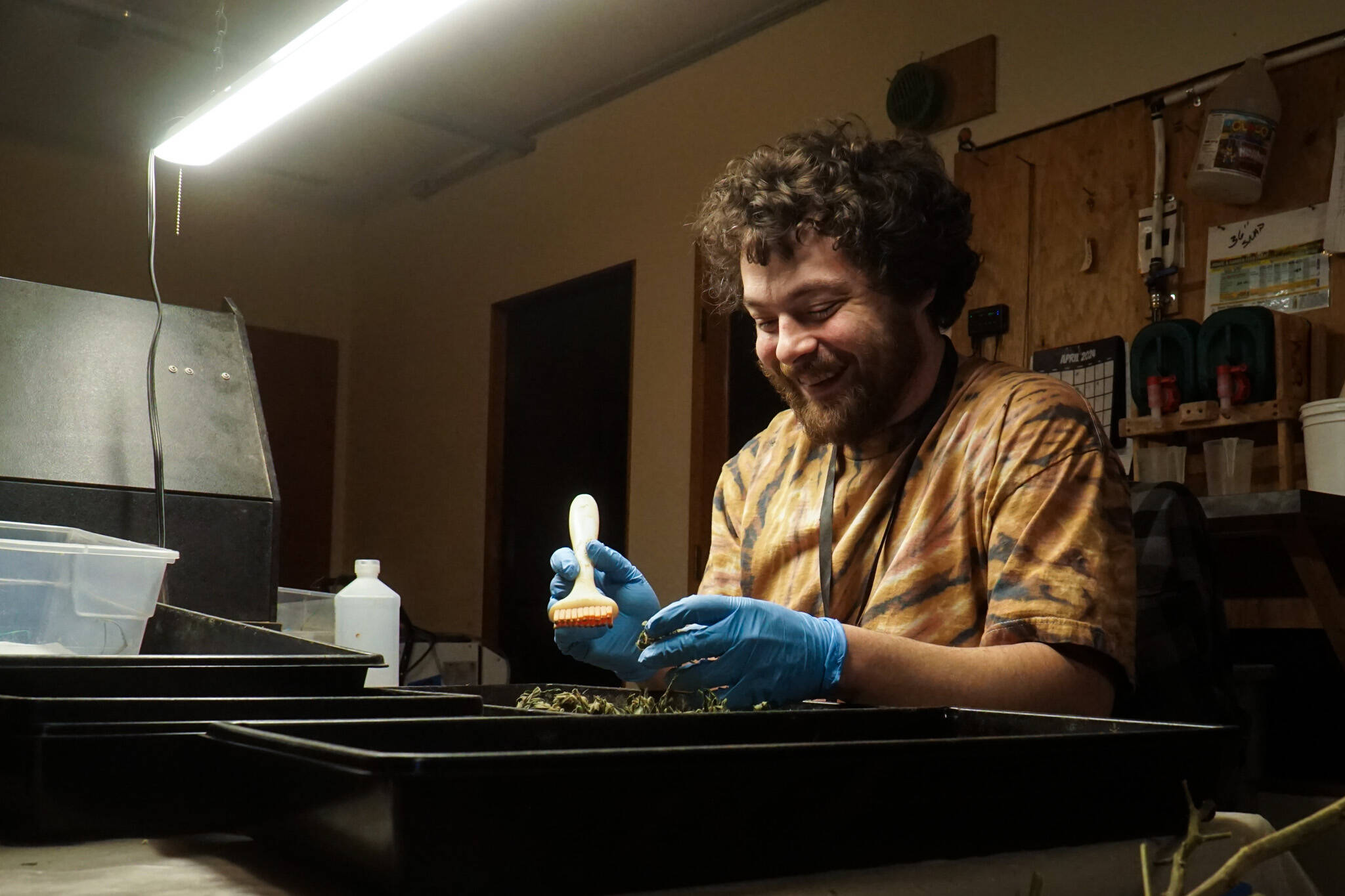April 20 has become one of the world’s most popular counterculture holidays, described as part celebration, part call to action. But Mike and Jeanellen Crandall, owners of Island Gro in Oak Harbor, are no strangers to rooms full of marijuana and the rollercoaster of recreational legality. For them, 4/20 is just another day.
In the world of cannabis, 4:20 p.m. started as a meet-up time to smoke. How this evolved to a celebration on the date of 4/20 is hazy at best.
Mike and Jeanellen’s boutique farm opened for business in 2016, but Mike’s been growing behind the scenes since the early ‘70s, he said. When he went to officially get his license, the government told him, ironically, they were hoping for people with his amount of experience to get involved in the new recreational industry.
Mike starts with mother plants, then pulls cuttings off them for propagation. Those cuttings go in fabric pots to maximize air flow to the roots. They grow in coco fiber soil, and he staggers harvests by three weeks to spread the labor. After about two weeks of drying, the buds are ready for trimming.
Indoor farms are ideal in Washington, as the farmer doesn’t have to mind the season. Because of this, Mike and Jeanellen can grow whatever they like, under bright yellow, high-intensity discharge lamps.
Quality determines Mike’s preferred strains, he said. Island Gro’s top seller for eight years straight is Gorilla Glue, an indica-dominant hybrid. So named for leaving the consumer “glued” to the couch, Gorilla Glue is potent, with a sour, earthy odor.
Mike and Jeanellen don’t have personal favorites. True connoisseurs, their tastes change with their mood and activity. They’ll smoke sativas when the house needs cleaning and indicas when a movie’s on.
“Depends on what you’re doing,” said Mike. “Do you want to get slammed? Get the indica.”
Mike’s favorite part of the job is self-employment; he can make his own schedule. But owning a cannabis farm isn’t all fun and games, he said. Despite being recreationally legal for over a decade, there’s still a lot of stigma around it.
A lot of times, they must run errands before coming to work, Jeanellen said, because at the end of the day they reek of marijuana and get eyeballs everywhere they go.
They also help with child care for their grandchildren and must ensure they don’t show up to their schools smelling like weed.
“We’re grandparents, you know?” she said. “We’re at the baseball games.”
Unlike other industries, Mike must be cognizant of where he promotes. This stigma may be a bit exacerbated in Oak Harbor as opposed to other communities in Washington, he said, as most of the population works for the Navy where it is still illegal.
The cannabis industry is also competitive, Mike said. With so many farmers battling for limited licenses and space, it’s not as easy to make ends meet in the business as it seems.
As a tie-dyed trimmer, Aaron Rogers cleans dried buds and Jeanellen packages the product for distribution, while Mike wheels out his most ripe plant from beneath its grow lights. Standing several feet taller than Mike, the plant holds hundreds of large, vibrant, glistening flowers. The plant is just days away from being hung to dry.
For a semi-retirement gig, Mike can’t complain, he said.
“We love getting up every day. We love going to work,” he said. “I couldn’t stand sitting in that rocking chair.”



